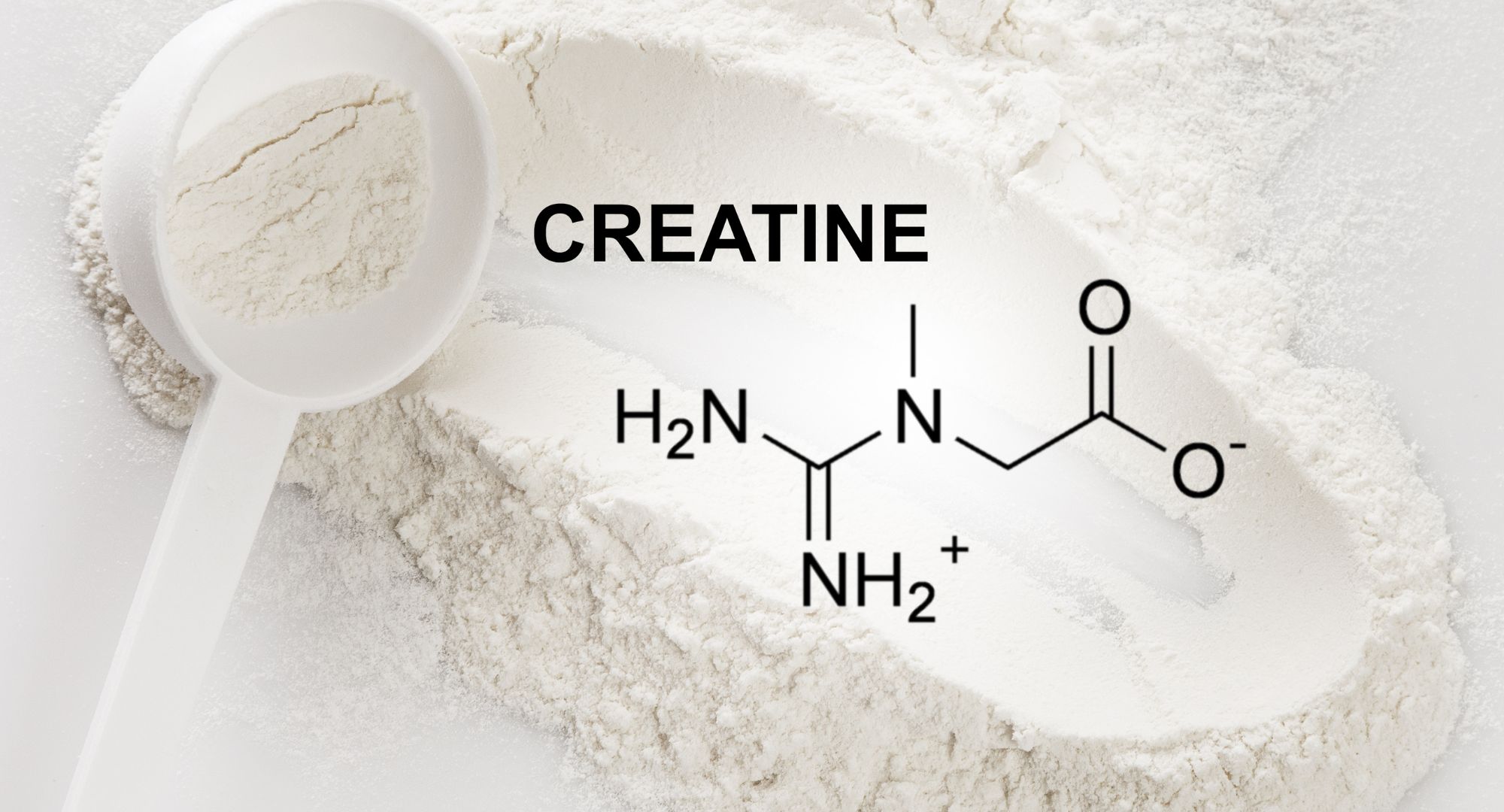
As the winter months approach, so does the dreaded cold and flu season. While there’s no magic cure for these common illnesses, some experts suggest that creatine may benefit the immune system and provide defense against cold and flu viruses.
However, it’s important to note that more research is needed to confirm these claims.
Below, we break down what creatine is, what it does, and what the experts say about the potential creatine benefits for cold and flu defense.

What does creatine do?
Creatine is a naturally occurring substance in the body’s muscles and brain. It’s also found in some foods, particularly meat and fish.
“Our muscle cells naturally harbor creatine, predominantly around the skeletal muscle tissue, a hub that holds approximately 95% of the body’s total creatine supply,” says Kevin Huffman, DO, board-certified bariatric physician and CEO and founder of Ambari Nutrition. “The remaining share is strategically stored throughout other parts of our anatomy; this distribution pattern stems from a critical need to maintain an accessible reservoir across different bodily systems.”
Creatine’s main job is to supply energy to cells, specifically those in the muscles. It helps muscles produce adenosine triphosphate (ATP), the body’s primary energy currency. By increasing ATP availability, creatine enhances muscle performance, giving you the extra power to push through tough workouts or physical activities.
Beyond muscle performance: The benefits of creatine
Creatine may be known for its muscle-boosting effects, but that’s not the only benefit it offers.
According to the Mayo Clinic, creatine supplementation may prevent injury and muscle cramping, improve cognition and brain health, counteract age-related declines in bone density, and reduce skin aging and wrinkles.
Now, researchers are exploring the potential benefits of creatine for the immune system and its role in defending against cold and flu viruses.

Creatine and the common cold and flu
While we can’t say creatine is a surefire secret weapon against the cold and flu, there is some evidence to suggest that it may positively impact the immune system.
“Through lessening physical stress that intense exercise inflicts upon the body, creatine may indirectly bolster immune function by fostering potential improvements therein,” says Huffman. “Limited evidence exists supporting the effectiveness of creatine in preventing or treating cold and flu symptoms; however, this does not preclude its potential effects.”
Even with limited research, newer studies have shown promising results indicating that creatine supplementation may help the immune system fight and defend against cold and flu viruses.
According to one 2023 study published in Food Science & Nutrition, creatine supplementation reduces post-COVID fatigue. A separate study found that creatine supplementation influences innate and adaptive immune responses, boosting natural killer cell activity, increasing cytokine production, and reducing inflammation.
Moreover, CON-CRĒT (a company that makes concentrated creatine HCI gummies) founder Mark Faulkner recently received a patent based on creatine’s ability to protect against viral infections, including the common cold and flu.
How much creatine should I take?
If you’re wondering whether you should pop a few gummies or opt for creatine powder, it’s always best to consult a healthcare professional or registered dietitian first.
Whether you exercise, how much you exercise, your weight, age, and other factors are important in determining just how much creatine you should take. However, most experts suggest starting with a dosage of five grams per day, which can be taken in divided doses or all at once.
If you have a sensitive stomach, you may want to avoid creatine monohydrate and stick with creatine HCL — this form is easier on the stomach and less likely to cause gastrointestinal issues.
Is creatine bad for you?
Anything taken in excess can have potential risks and side effects, and creatine is no exception. However, when taken in recommended dosages, creatine is generally considered safe and well-tolerated by most.
If you’re considering adding creatine to your daily routine, talk to your doctor first.

How to boost your immune system
While the jury is still out on whether creatine can boost your immune system just enough to fight off the cold and flu, there are other things you can do to keep your immune system strong and healthy.
The Centers for Disease Control and Prevention (CDC) recommends:
- Eating plenty of fruits and veggies, including leafy greens, citrus fruits, and berries
- Engaging in regular physical activity and exercise
- Maintaining a healthy weight
- Getting enough sleep each night (7-9 hours for adults)
- Avoiding smoking, drinking, and other unhealthy habits
- Practicing good hygiene, such as washing hands regularly and covering your mouth when coughing or sneezing
The bottom line
There’s no cure for the common cold or the flu, and while creatine may have potential benefits for immune function, more research is needed to understand its effects fully.
That said, it probably wouldn’t hurt to grab some creatine gummies in addition to your regular flu prevention measures (vitamin C, zinc, etc.). Gargling salt water, staying hydrated, and taking acetaminophen (Tylenol) can help alleviate symptoms.
“Medical professionals tend to adhere more to proven, scientifically-backed methods of treating cold and flu symptoms; these typically don’t include the use of creatine,” says Huffman. “Conversely, a subset–some health and fitness professionals–may advocate its usage due to potential immune-supporting properties.”




